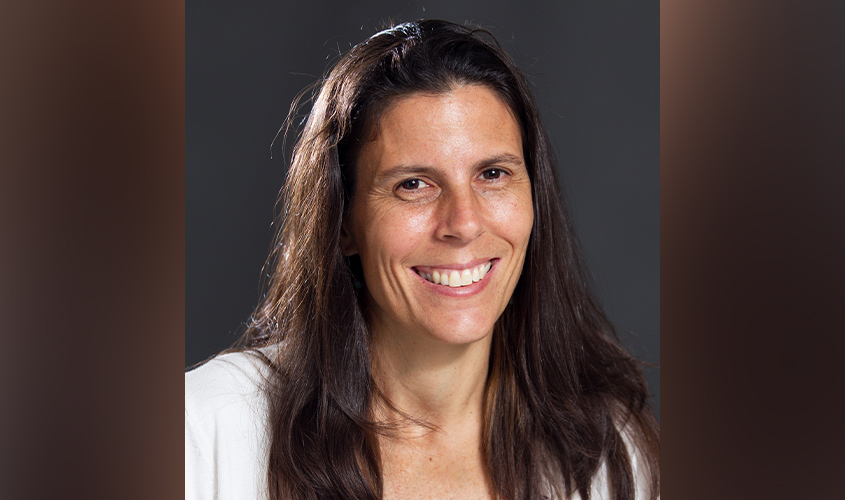
Dr. Sonia Cheetham-Brow, the School of Veterinary Medicine’s associate dean of research and a professor in the Department of Pathobiology, has dedicated her life to studying animal viruses and conducting veterinary research. Her work has appeared in several prestigious publications, including the British Journal of Cancer and the Journal of Virology.
As associate dean of research, Dr. Cheetham-Brow provides leadership on SVM’s development of research studies while also adding her expertise in research collaborations with the Schools of Medicine and Arts and Sciences, as well as global research efforts. She also helps to create and develop research-related programs and courses, ensures that all SVM research adheres to SGU’s standards and policies, helps new faculty find internal and external research opportunities, and serves on the Small Grant Research Initiative (SGRI) grant and policy committee. She currently teaches virology to Term 3 students as well as a selective in scientific article interpretation and electives in research.
In her discussion with SGU News, she talks about why research is important for veterinary students, how the study of veterinary virology applies to the current pandemic situation, and offers insight into how students can get involved in research studies at SGU.
St. George’s University: Why is understanding the role of research in veterinary medicine an important aspect for students to learn?
Dr. Cheetham-Brow: Veterinary medicine is based in science. Scientific findings occur through research. In order to advance in veterinary medicine, exposure to evidence-based veterinary medicine and research must be a critical part of the students’ curriculum. If students can appreciate the scientific method, they will be ready to differentiate amongst real and fake scientific advancements.
SGU: How does the study of veterinary virology apply to the current pandemic situation?
Cheetham-Brow: At SGU, SVM students are presented with virology based on the “One Health” disciplinary approach. The concept emphasizes not just veterinary viral diseases and current zoonotic viruses but also identifies potential viral families that can jump species, such as SARS Cov2, which was identified as a cause of COVID-19.
What students learn about virus transmission and intervention strategies in the absence of vaccines (which occurs in many instances) can be immediately translated to the current situation. The aim is to have our graduates ready to fight existing viral threats but also prepare them to apply what they know to new viruses that may come in the future.
SGU: What research are you currently involved in?
Cheetham-Brow: My main focus in research are viruses of zoonotic importance in bats and mosquitoes but I also collaborate with other faculty working on viruses in sea turtles, monkeys, and domestic animals.
SGU: How has your travels/background prepared you to teach the next generation of veterinarians?
Cheetham-Brow: My Doctor of Veterinary Medicine training began in Argentina and then I gained further expertise as a visiting scholar at Australia’s Commonwealth Scientific and Industrial Research Organization (CSIRO). I also completed my PhD at Ohio State University in the USA and my Postdoc at the University of British Columbia in Canada. Through my research training, I acquired a broad background of skills, techniques, hypothesis-based research design and data analysis. I also gained experience by working in research laboratories in both developed and developing countries, both of which have proven of invaluable to my career development.
SGU: How can students get involved in research studies while at SGU?
Cheetham-Brow: In addition to the information found on the SVM SGU website, I present all the different options to Term 1 students as part of their Evidence-Based Veterinary Medicine course. This includes introducing the faculty coordinating each program such as the IVSP (research summer program) VSRI (veterinary student research investigator) etc. Additionally, interested students can reach out and enquire about possibilities by contacting me via email and telephone number (474) 444 4175 ext. 3805.
SGU: What advice would you give to students currently pursuing veterinary medicine?
Cheetham-Brow: Everything we know and do in veterinary medicine is based on the research from people before us. Moving forward will depend on research by us. Even if students are certain that they want to be clinicians, there are types of research that they can participate in, such as clinical research. Also, case studies are of interest so if they find themselves with a new or unusual case, they should share it in the form of a case report which once published will be available to others around the globe.
– Tornia Charles